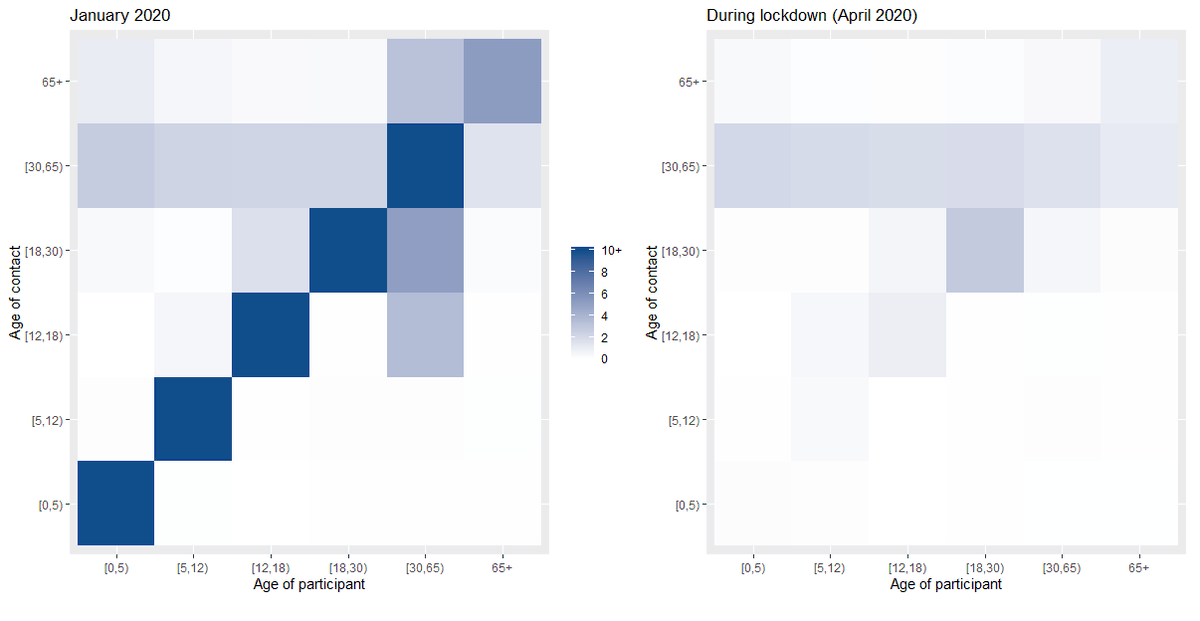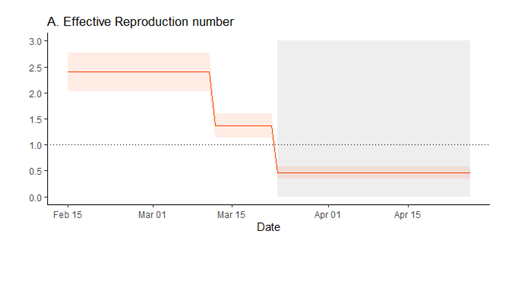Main points presented in our preprint https://www.medrxiv.org/content/10.1101/2020.05.27.20114017v2">https://www.medrxiv.org/content/1... on the #COVID19 first epidemic wave in #Greece @VanaSypsa @dparask69 @STsiodras:
1/5During lockdown, the number of daily contacts was reduced by 86.9% as compared to pre-pandemic
1/5During lockdown, the number of daily contacts was reduced by 86.9% as compared to pre-pandemic
2/5 This was assessed using a social contacts survey in a sample of children and adults. The decline is similar to that estimated in two other surveys in China ( https://science.sciencemag.org/content/early/2020/05/04/science.abb8001)">https://science.sciencemag.org/content/e... and UK (adults only in UK) ( https://bmcmedicine.biomedcentral.com/articles/10.1186/s12916-020-01597-8)">https://bmcmedicine.biomedcentral.com/articles/...
4/5 The reduction in R0 attributed to multiple social distancing measures implemented simultaneously was 81·0% (95%CrI: 71·8%, 86·0%). The reduction attributed to each measure separately (reduction of contacts at work, school, leisure activities) ranged between 10%-24%.
5/5 Based on mathematical modelling, it is estimated that the proportion of the Greek population that was infected between mid February-end of April did not exceed 0.26%. Recent data from seroprevalence surveys in adults (blood donors, residual sera) corroborate this finding.

 Read on Twitter
Read on Twitter



